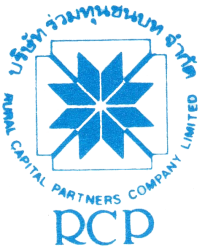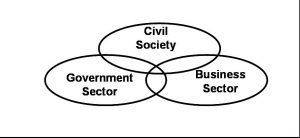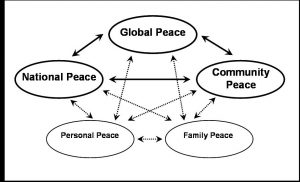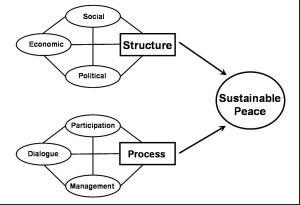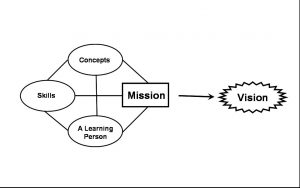ฟื้นฟูชุมชนหลังภัยพิบัติด้วยพลังชุมชน
(คำกล่าวเปิด “งานฟื้นฟูชุมชนหลังภัยพิบัติด้วยพลังชุมชน” “People’s Leadership in Disaster Recovery : Rights, Resilience, and Empowerment” ณ โรงแรมรอยัลภูเก็ตซิตี้ จังหวัดภูเก็ต วันที่ 30 ตุลาคม 2549)
Opening Address by
H.E. Paiboon Wattanasiritham
Minister of Social Development and Human Security
At the International Seminar on People’s Leadership in Disaster
Recovery : Rights, Resilience, and Empowerment
30 October 2006 , Phuket , Thailand
Regional representatives of UNDP, representatives of Disaster Affected Communities from oversea countries and Thailand , Excellencies, Distinguished Guests, Ladies and Gentlemen,
It is a great privilege and a great pleasure to be invited here today to open this international workshop on People’s Leadership in Disaster Recovery : Rights, Resilience,and Empowerment. I believe that this is very important issue that has great relevance, not just for how we can better cope with disasters but also for how we can reshape our normal world into one in which all people can have access to human security and can play meaningful social roles. There are a number of interrelated reasons for me to be extremely optimistic about the value and potential impact of this workshop.
The first reason is that we live in the same increasingly crowded and environmentally fragile world. We know that it is inevitable that we will encounter more and more natural and manmade disasters. Moreover, because of increasing population densities in disaster prone regions, and because of new factors like global warming, we can expect many future disasters on extremely large scales. We cannot prevent natural disasters like earthquakes, tsunamis, typhoons and hurricanes from occurring but we can look for new and more creative ways of anticipating and mitigating the onset of such disasters and for coping more effectively and equitably with the impacts of such disasters on people, especially poor communities which usually suffer the most.
The second reason is that each of our national and regional experiences of natural disasters and the emergency relief and recovery efforts that are made in response to each of them, can provide us with lessons that can help us to identify new and better approaches to disaster prevention, mitigation, relief and recovery. The new information and communications technologies have greatly enhanced our capacity to record and document these experiences, to analyze them and share them with others anywhere in the world. In this way many valuable insights, experiences and innovations can be shared right now with others from other countries and regions. These lessons and new approaches can also be adapted and institutionalized for the benefit of others in the future. This will help to move us away from the often token and ad hoc responses to disaster relief and recovery that we have seen in the past, responses that have tended to repeat mistakes rather than rectifying them.
The third and perhaps the most important reason for having high hopes about the impact of this meeting is the fact that a great deal of new learning and tested experience has been attained in the recent spate of natural disasters including the 2001 earthquake in Gujarat in India, the December 2004 tsunami that affected several countries in the Indian Ocean. This learning has significantly changed our perceptions of how to better assist survivors in the short and long term and how to prevent or minimize the negative impacts of disasters on the lives and property of vulnerable populations in the future. Disasters and their aftermaths bring into sharp focus the extremely difficult and precarious circumstances under which the many poor and marginalized people in the world are living all the time. But in normal times we tend to only look at their situation in a very superficial way. Disasters highlight the fragility and vulnerability of poverty and powerlessness that stalk the daily lives of the poor. Some dimensions of poverty are structural like landlessness , lack of access to education, health services and economic opportunities. In the aftermath of a disaster, it becomes clear that by neglecting these issues in times of normality, we have left people at a great disadvantage not only when disaster strikes but also in a post disaster context.
Because of the tragic loss of life and property, because of the isolation and despair they cause, disasters jolt us out of our apathy and indifference and provoke strong waves of solidarity with and compassion for both those who have been lost and those broken hearted survivors who must begin their lives and rebuild their communities from scratch. In this respect disasters provide each and every one of us with an opportunity to exercise our humanity and give generously, without expecting any return for ourselves, to those who are so clearly devastated and left destitute by disasters. The outpouring of emergency relief and recovery aid funding in the wake the 2004 tsunami demonstrated this very powerfully when we saw unprecedented scales of private donations from all sides. But all the money and materials in the world does not guarantee that all those survivors that need various types of assistance and support will get what they really need. The first thing we have learned from these recent experiences is that we have to listen to the disasters survivors themselves if we really want to help them, if we really want to reach those most in need and help them in lasting way.
In the emergency relief phase the responses of donors, relief agencies and volunteers are scattered. They have to be so because these outsiders do not know which individuals and which communities have been most affected by the disaster, where those people are temporarily located and what their most pressing specific needs are (apart from the very general categories of medical aid, food, water and temporary shelter). What we have learned from the community based approaches adopted in Gujarat, India, Aceh, Indonesia and several provinces in Southern Thailand is that when we bring the affected community members together they can help to make the flows of emergency aid effectively reach all those in need, not just the ones in the most accessible areas.
Because the survivors know their neighbours and village localities, they can ensure the elderly and the disabled and the orphaned and traumatized are not overlooked or neglected. Because the survivors know where more remote villages were located before the disaster, they can alert emergency agencies and volunteers to seek them out and provide vital emergency relief to them. Involving the survivors from ‘day one’ in the emergency relief and reconstruction effort enables a range of new learning on all sides; on the part of the surviving villagers who would normally be treated as passive victims capable of merely receiving things, and on the part of relief and assistance agencies, professionals and volunteers who would normally assume that they had to do everything for the daunting number of disaster ‘victims.’ The survivors and their communities can contribute greatly to the relief phase through providing their knowledge, their energy and their surprising range of skills and creativity to the process.
So a major breakthrough takes place when the survivors are able to organize and work out their priorities and participate in taking decisions on what is provided to whom. This is important in the relief phase not just to improve the relief distribution itself, but also because it provides survivors with the collective strength to cope with other threats and challenges that await them in the reconstruction and recovery phase. Sometimes government policies that are imposed in the post disaster context without consultations with the disaster affected communities result in communities being forced to relocate to areas far away form their livelihoods and social networks. It can also mean that they are forced to live in houses that are of unsuitable designs for their lifestyles and livelihoods. But when the survivors in disaster affected communities begin to organize and network with each other they can overcome these challenges. They can also draw on their vivid awareness of the recent disaster to build collective commitment to preparing for and minimizing the impact of future disasters, regardless of what form they take.
Ladies and Gentlemen, this month Thailand has been experiencing the most serious flooding in more than 60 years covering the areas in 47 out of 76 provinces. In this context the experiences and self reliant approaches developed by the communities in tsunami affected provinces in the South of Thailand, such as Ban Nam Khem, Tung Wah and Tab Tawan villages, have proven to be of enormous use to flood affected communities. The work of the community networks has been an important contribution to helping communities to better protect their lives and property rather than waiting passively for the others to rescue them and redress their losses.
But perhaps the most important learning takes place within the lives of the survivors themselves, especially the poor, Prompted by their recent close encounters with death and the tragic loss of their loved ones, they learn that working together with their neighbours on solving their individual and collective problems, brings new levels of solidarity and mutual trust, of energy, courage and hope to each and to all. In this way they begin to see that they can not only regain the level of control they had over their lives prior to the disaster, they can also begin to tackle the longer term problems like poverty and insecurity, barely subsistent livelihoods, lack of access to credit and increasing environmental degradation. In so many disaster afflicted communities men and women, youths and elders, regardless of how poor they are, no matter how marginalized and disadvantaged, have found that they have valuable contributions to make to the well being of those around them, to the future well being of their families, their communities and to their countries, especially when development agencies and the government are actively involved and in support to communities.
In this light we can see that community-based and community-driven disaster relief and recovery approaches offer us new possibilities, not just to better cope with post disaster needs but to contribute directly to disaster prevention by enabling poor vulnerable communities to break out of their poverty and to create their own collective security. This is indeed important development direction for the government and development agencies in our global society to learn and work together.
Thank you for your kind attention.
ไพบูลย์ วัฒนศิริธรรม
14 พ.ย. 49
อ้างอิง
บันทึกนี้เขียนที่ GotoKnow โดย นาย ไพบูลย์ วัฒนศิริธรรม ใน ไพบูลย์ วัฒนศิริธรรม
เว็บไซต์ ต้นฉบับ https://www.gotoknow.org/posts/59678

